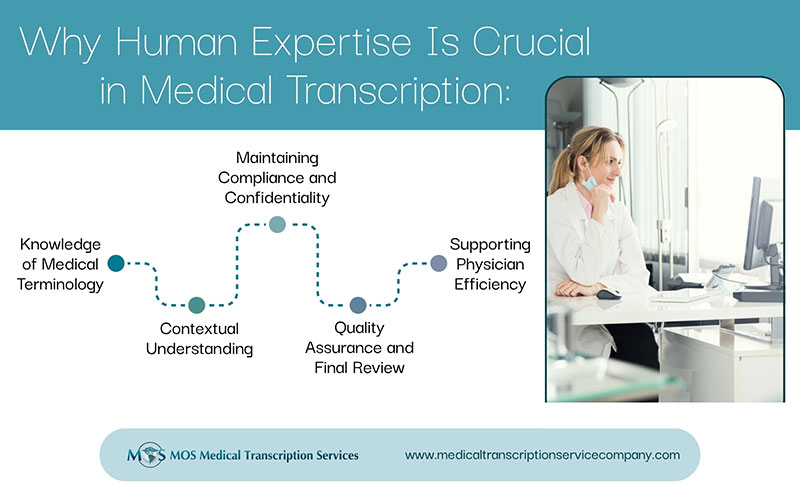Healthcare administrators face unique challenges when it comes to the management of hospital departments, staff, finance, and health information. Regulatory changes, technological advancements, disease management, phenomenal increase in data, goals of value-based care, cyber security issues, and the protection of patient records have made health care a complex system. Just as medical transcription services have evolved to keep pace with the latest developments such as electronic health records (EHRs), healthcare administrators need to adapt to deal with the dynamic healthcare scenario to succeed in their tasks. Let’s take a look at the current issues in healthcare management.

- Transition from fee for service to value based healthcare: The Medicare Access and CHIP Reauthorization Act (MACRA) was passed in 2015 and completely changed the reimbursement landscape with a phased transition to value-based billing systems. With value based care, improving patient outcomes and efficiency in the provision of care could be the most important goal for healthcare administrators in the coming years. Value-based payment models require physicians to deliver the best outcomes while paying attention to resource utilization with the goal of minimizing healthcare costs. To effectively implement a value-based model, healthcare executives need to share actionable insights with physicians, especially on the cost of care. This will help physicians manage resources appropriately and make better patient care decisions. Hospital systems will need to engage patients in their health, harness the power of their data, connect stakeholders at all levels, and integrate the goals of value-based care in the daily workflow. They need to come up with effective strategies to deliver lower-cost care.
- Improving patient outcomes using technology: Experts say while the healthcare costs in the U.S. are much higher than in other countries, patient outcomes have actually dropped. Health informatics is taking over every aspect of the industry. To improve patient outcomes, healthcare administrators will need to ensure that EHRs and other technologies are effectively implemented within the healthcare organization (Becker’s Hospital Review). In fact, electronic patient records allow hospitals and physicians to share information seamlessly. They must keep up with advances in medicine, technology and government regulations and policy changes to ensure quality medical care and improve operational efficiency.
- Expanding access to care: Healthcare systems need to ensure that patients can easily and affordably access the care they need to achieve optimal health outcomes. Lack of access to care will lead to delays in treatment, which can exacerbate medical conditions and cost of care for both the patient and the health system. Industry professionals must work to understand the challenges patients face when seeking care and devise innovative strategies to resolve these issues. Healthcare administrators need to consider how services can be made available to patients, especially those living in rural areas. Telehealth, mobile health technology, and online scheduling are options that can promote treatment access in ways that are convenient for the patient.
- Cyber security – confidentiality/privacy issues: With digital transformation initiatives, healthcare cyber security has become a major concern for hospitals and their management. In April 2019, providers, health insurers and their business associates reported 44 data breaches to the federal government. According to medical device manufacturer Abbott and the Chertoff Group, about 75 percent of providers and 62 percent of administrators feel underprepared to face cybersecurity risks, due to staffing, training, and awareness (healthitsecurity.com). The HIPAA Security Rule requires covered entities to evaluate data security controls by conducting a risk assessment, and implementing a risk management Outsourcing medical transcription to a HIPAA-compliant transcription company, for instance, can ensure that patient health information is well-protected. Engagement across all stakeholders in the healthcare ecosystem is critical to ensure cyber security.
- Shortage of healthcare professionals: America’s aging population is expected to double in the next 20 years and 75 percent of Americans over 65 live with multiple chronic health conditions. These statistics are really alarming given the fact that the nation is facing a shortage of healthcare professionals. The Association of American Medical Colleges predicts a shortage of up to 120,000 physicians by 2030. The Bureau of Labor Statistics estimates a need for 649,100 replacement nurses by 2024. Becker’s Hospital Review notes that hospital administrators must have a plan in place to address staffing challenges and compete for the best employees – registered nurses, licensed practice and licensed vocational nurses, nursing aides, orderlies and attendants, and physicians and surgeons. They must develop strategies and policies to recruit, hire and retain qualified healthcare professionals.
Electronic health records are one of the top tools that can help healthcare administrators and physicians provide timely, quality care. EHRs enhance care coordination by allowing patient information to be shared among multiple health care providers and organizations. But administrators need to deal with the financial and staffing financial burdens of purchasing EHR software and hiring the specialized staff necessary to implement and maintain it. Fortunately, HIPAA medical transcription services are available to take care of EHR data entry work which cuts into physician time with patients.


